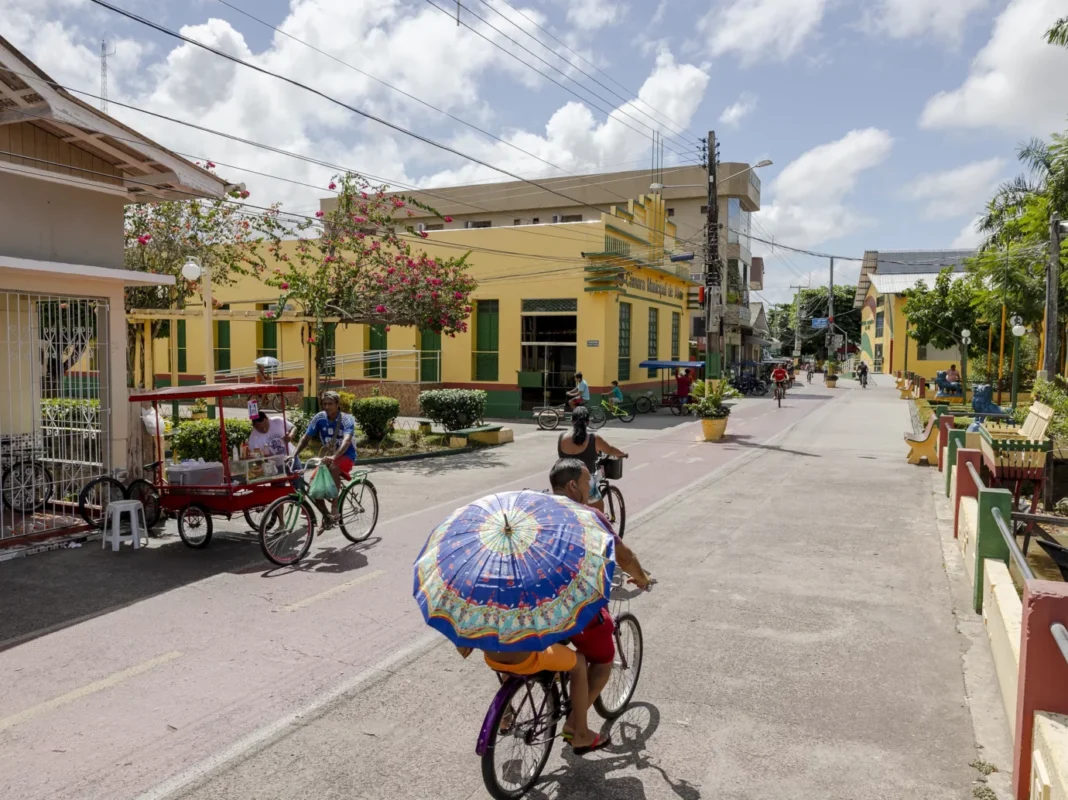In the heart of Brazil’s Amazon rainforest, a small town is proving that going car-free might just be the key to tackling climate change. Afuá, known as the “Venice of the Amazon” due to its waterways and lack of roads, has been setting an example for sustainable living since 2002 when it banned motor vehicles. Now, its mayor, Odimar Wanderley Salomão, is pushing even further, aiming for net zero emissions by promoting cycling as the primary mode of transportation.
In a recent article published by NPR, Mac Margolis, a longtime reporter, columnist, and scriptwriter covering Latin America, interviewed Mayor Salomão — also called “Mazinho” — on his vision for Afuá as a beacon of sustainability not just for the Amazon but for the world. With one bicycle per capita and a population accustomed to navigating the city’s narrow streets by bike, Afuá stands out in a region still heavily reliant on fossil fuel-driven urbanization.
The decision to ban cars wasn’t just about environmental concerns; it was also about practicality. Much of Afuá is built on stilts above floodplains, making traditional road infrastructure impractical. Instead, the town relies on boats, bicycles, and bicycle-taxis for transportation.
However, Afuá still faces challenges. Poverty and infrastructure deficiencies persist, with many residents lacking access to basic services like running water and sewage. The town relies on federal tax transfers to meet its financial needs, and like many Amazonian cities, it struggles with poverty and income inequality.
Moreover, Afuá has yet to fully transition to renewable energy sources. The town is not connected to the national grid and relies on diesel-burning thermoelectric plants to keep the lights on. Despite these challenges, Afuá demonstrates that pragmatic leadership and community consensus can drive meaningful change.
By eschewing cars, resisting the temptation of traditional road building, and embracing centuries-old ways of river life, Afuá offers a real-time experiment in sustainable urban living. Its success without the need for traffic lights or tractors shows that even in the face of chaotic urbanization and climate change, solutions are possible.
As the world grapples with the urgent need to reduce emissions and mitigate climate change, Afuá serves as a reminder that sometimes the most effective solutions are the simplest ones. By pedaling towards net zero emissions, this small town in the Amazon is leading the way towards a more sustainable future.
To read the original article by Mac Margolis on NPR, click here.



